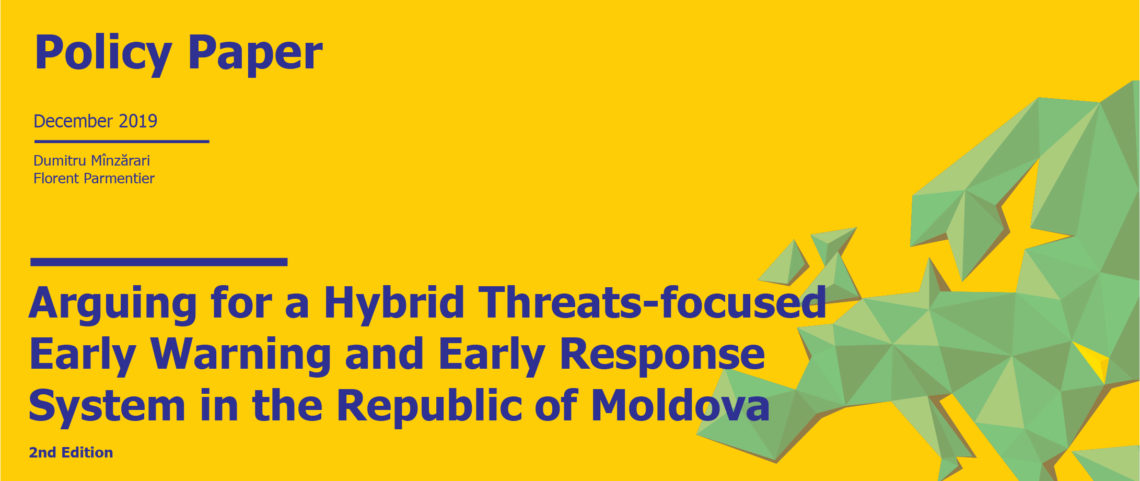Arguing for a Hybrid Threats-focused Early Warning and Early Response System in the Republic of Moldova

Authors: Dumitru Minzarari and Florent Parmentier
Executive Summary
As the nature of interstate aggression evolves, new conflict technologies are developed by some states, aiming to undermine and destroy the sovereignty of other states. This requires a fundamental review of contemporary security policy model. Territorial conquests are being replaced by interstate aggression models that penetrate domestic political process of the target states through bribing of politicians and officials, funding of parties, and manipulation of public opinion.
Potential aggressors can become direct participants of target state’s political process, by injecting into these domestic political processes its proxy actors or agents. Due to globalization of communication and information, states lose sovereignty over their national informational space and face foreign competition in shaping domestic public opinion.
States can lose their sovereignty as a result of elections, won by foreign proxies, or due to the erosion of loyalty of its citizens and the contestation of the elected government, including through violent means.
Traditional democratic rights, such as freedom of assembly, can be exploited to stage civil unrest and to fire rebellions. We poorly understand these conflict technologies and cannot yet design effective countermeasures. The state may fail to deliver the most important public good to its population – public order and security.
This study examines the emerging security environment in EU’s Eastern Neighbourhood and suggests ways to develop effective policy responses. This includes the building of Early Warning and Early Response systems in the Republic of Moldova – a country where new conflict technologies are practiced and polished by Russia.
This would allow EU to i) better understand the emerging foreign aggression technologies; ii) learn how they interact with and exploit genuine democratic processes; iii) map the early warning signals that help distinguishing between genuine political process and their engineered version; iv) design preventive measure that would silently diffuse the effects of these foreign aggression technologies.
Fullscreen Mode
